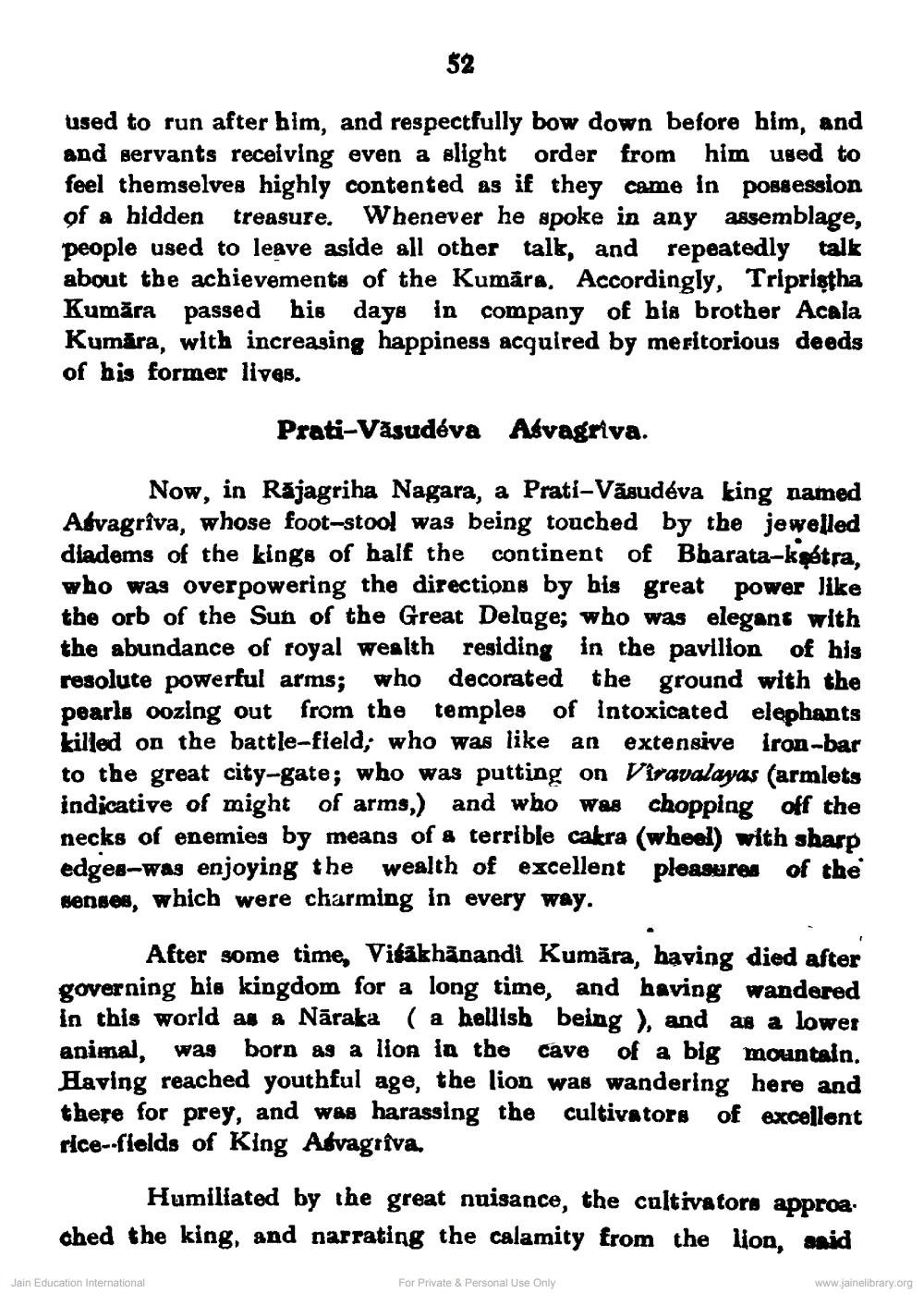________________
52
used to run after him, and respectfully bow down before him, and and servants receiving even a slight order from him used to feel themselves highly contented as if they came in possession of a hidden treasure. Whenever he spoke in any assemblage, people used to leave aside all other talk, and repeatedly talk about the achievements of the Kumāra, Accordingly, Tripristha Kumāra passed his days in company of his brother Acala Kumāra, with increasing happiness acquired by meritorious deeds of his former lives.
Prati-Vasudeva Aśvagriva.
Now, in Rajagriha Nagara, a Prati-Väsudéva king named Alvagriva, whose foot-stool was being touched by the jewelled diadems of the kings of half the continent of Bharata-kétra, who was overpowering the directions by his great power like the orb of the Sun of the Great Deluge; who was elegant with the abundance of royal wealth residing in the pavilion of his resolute powerful arms; who decorated the ground with the pearls oozing out from the temples of intoxicated elephants killed on the battle-field; who was like an extensive iron-bar to the great city-gate; who was putting on Viravalayas (armlets indicative of might of arms,) and who was chopping off the necks of enemies by means of a terrible cakra (wheel) with sharp edges-was enjoying the wealth of excellent pleasures of the senses, which were charming in every way.
After some time, Visakhānandi Kumāra, having died after governing his kingdom for a long time, and having wandered in this world as a Naraka ( a hellish being ), and as a lower animal, was born as a lion in the of a big mountain. Having reached youthful age, the lion was wandering here and there for prey, and was harassing the cultivators of excellent rice--fields of King Advagriva.
cave
Humiliated by the great nuisance, the cultivators approa ched the king, and narrating the calamity from the lion, said
Jain Education International
For Private Personal Use Only
www.jainelibrary.org




